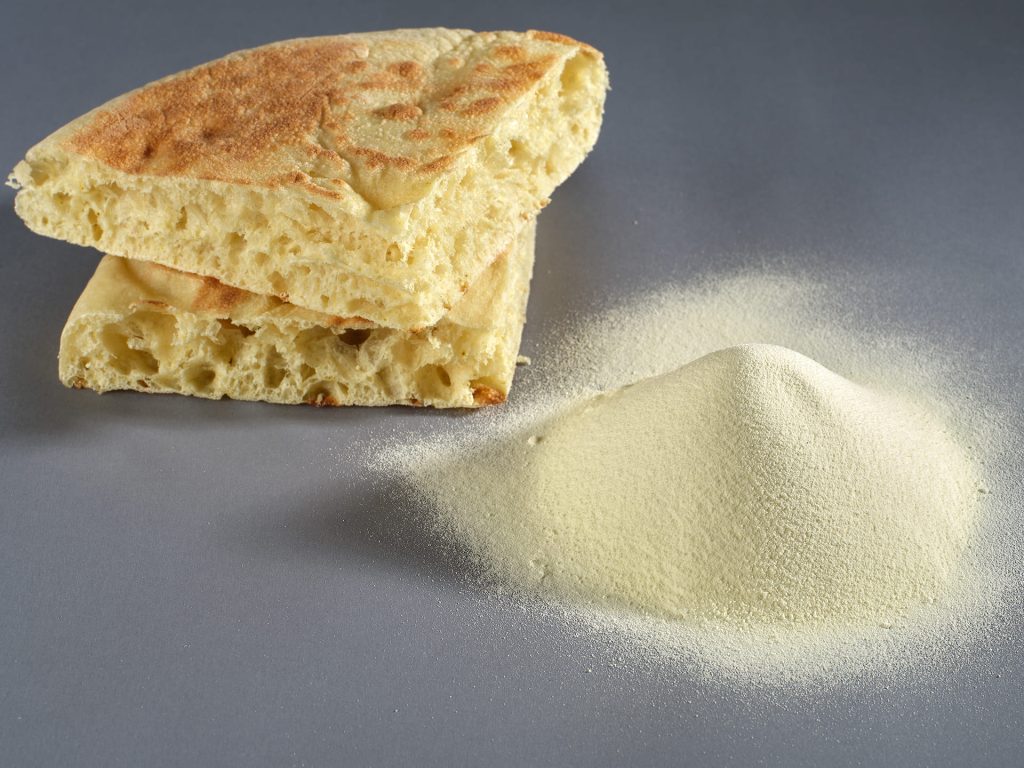eska-en
What is Calcium Propionate E282?
What is Calcium Propionate E282?
Calcium Propionate E282 is an additive used as a preservative. It is a compound used as an additive to prevent mold growth in many food products. Its chemical formula is Ca(C2H5COO)2. It is widely used in the food industry, especially to extend the shelf life of bread and other fermented products.
The preservative properties of calcium propionate are attributed to the inhibition of microbial growth by propionic acid, which is released when the pH level drops. This prevents food from becoming moldy and thus extends its shelf life.
How to Use Calcium Propionate E282?
Calcium Propionate E282 is often used as a preservative in the food industry. It is commonly used in bread, cheese, dairy products, leavened products and some delicatessen products. It is often used to prevent unwanted microbial growth such as mold and fermentation.
The use of calcium propionate usually occurs as part of mixtures made by food manufacturers. The amount used usually depends on the type of product, its volume and the desired shelf life.
When used, it is usually added in dry form. Especially in fermented products such as bread, it is important to add it without affecting the fermentation process. It should be well mixed so that it is homogeneously distributed in the product.
Specific guidelines on the use of calcium propionate are usually provided by the manufacturer and it is important that it is generally used in accordance with food safety and quality standards. Therefore, a food producer should strictly follow the relevant prescriptions and procedures when using such preservatives.
How is Calcium Propionate Obtained?
Calcium propionate is obtained by the reaction of propionic acid with calcium hydroxide. During this reaction, propionic acid reacts with calcium hydroxide to form calcium propionate and water. The chemical equation is generally as follows:
Propionic acid + Calcium hydroxide → Calcium propionate + Water
This reaction can be carried out on an industrial scale and the end product, calcium propionate, is used in various food preservatives and animal feeds.
Is Calcium Propionate Healthy?
Calcium propionate is a compound used as a preservative in the food industry. It is often used to prevent mold growth in bread and other fermented products. It can also be used to make some cheeses.
Calcium propionate is generally considered acceptable from a health perspective. The United States Food and Drug Administration (FDA) has approved the use of calcium propionate as a safe preservative in foods. However, some people may be sensitive or allergic to it.
Like any food additive, there may not be complete information on the long-term effects of consuming calcium propionate in excessive amounts. Therefore, it is important to maintain a balanced diet and consume a variety of foods. If you have any health concerns, it is important to consult a healthcare professional.
How Much Should Calcium Propionate Be Used in the Food Industry?
The recommended dosage of calcium propionate for use in the food industry can vary depending on the product and the specific application, usually used in the food industry. However, typically the use of calcium propionate is done in a way that is compatible with the content of the food to ensure the preservative effect of the product.
For example, for leavened products such as bread, the dosage can generally range from 100 grams to 400 grams per 100 kg of flour, depending on the amount of flour. These amounts are usually determined by local food safety rules and regulations.
More specific information is needed to give a precise recommendation on dosage of use. Therefore, it is important to consult food industry standards and local regulations to determine the recommended dosage for the use of calcium propionate. It is also important to act in accordance with the instructions and prescriptions provided by the manufacturer.
Can Calcium Propionate be used as a Mold Inhibitor in Packaged Breads such as Flatbread, Hamburger Bread, Toast Bread, Tortillas?
The answer to the question of whether Calcium Propionate E282 can be used as a Mold Inhibitor in Packaged Breads such as Flatbread, Hamburger Bread, Toast Bread, Tortilla; Yes. Calcium Propionate is used as a mold inhibitor in the bakery industry. You can find some examples below;
Bazlama
For flat breads such as flatbreads, the dosage is usually determined by the amount of flour. The use of calcium propionate can usually be between 100-300 grams per 100 kg of flour.
Hamburger Bread and Toast Bread
It should be noted that the use of calcium propionate in Hamburger Bread and Toast Bread will negatively affect yeast growth and cause volume loss in breads. For this reason, the use of yeast should be reconsidered at high usage rates. Again, it can vary between 0.1% and 0.3% depending on the amount of flour.
Tortilla
For thin and flexible breads such as tortillas, the dosage may generally be lower. This is because, in addition to calcium propionate, other preservatives and acids will be used to increase preservative effectiveness.
Here, too, it can be used between 0.1% and 0.3% based on the amount of flour.
At high temperatures, especially in summer, the use of calcium propionate alone will not be sufficient and mold will form.
For more effective solutions, you can contact us via the contact form or by calling us.

